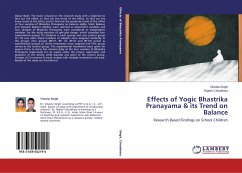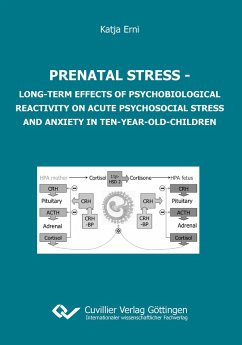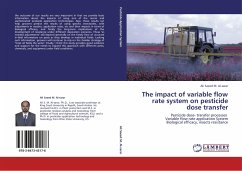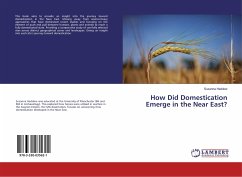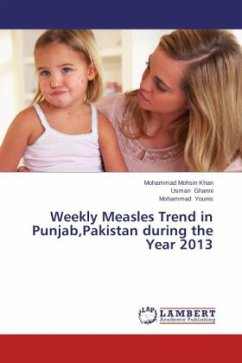
Weekly Measles Trend in Punjab,Pakistan during the Year 2013
Versandkostenfrei!
Versandfertig in 6-10 Tagen
24,99 €
inkl. MwSt.

PAYBACK Punkte
12 °P sammeln!
Measles (also known as morbilli, English measles, or rubeola not to be confused with rubella) is an infection of the respiratory system caused by a virus, specifically a paramyxovirus of the genus Morbillivirus. Morbilliviruses, like other paramyxoviruses, are enveloped, single-stranded, negative-sense RNA viruses. Symptoms include fever, cough, runny nose, red eyes and a generalized, maculopapular, erythematous skin rash, the symptom for which measles is best known. Measles is spread through respiration (contact with fluids from an infected person's nose and mouth, either directly or through ...
Measles (also known as morbilli, English measles, or rubeola not to be confused with rubella) is an infection of the respiratory system caused by a virus, specifically a paramyxovirus of the genus Morbillivirus. Morbilliviruses, like other paramyxoviruses, are enveloped, single-stranded, negative-sense RNA viruses. Symptoms include fever, cough, runny nose, red eyes and a generalized, maculopapular, erythematous skin rash, the symptom for which measles is best known. Measles is spread through respiration (contact with fluids from an infected person's nose and mouth, either directly or through aerosol transmission), and is highly contagious 90% of people without immunity sharing living space with an infected person will catch it. An asymptomatic incubation period occurs nine to twelve days from initial exposure. The period of infectivityhas not been definitively established, some saying it lasts from two to four days prior, until two to five days following the onset of the rash (i.e. four to nine days infectivity in total), whereas others say it lasts from two to four days prior until the complete disappearance of the rash.



